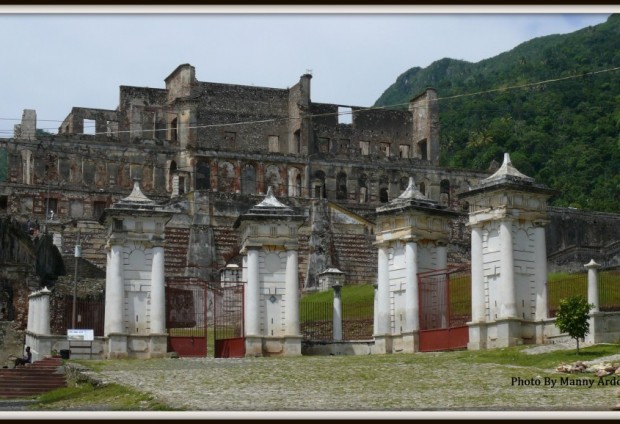The Next Haitian Hero
© Max Zamor
[email protected]
This is a reprint form an article I wrote in 2008 after the hurricanes The issues cited in this article still apply today and bear repeating
The fall of the Duvalier regime in the late eighties brought elation and hope to the Haïtian nation. After the rise of the people which ended the ruthless dictatorship and its unadulterated kleptomania, there was light at the end of the deep tunnel of misery. There was a bulging expectation for change and a thirst for some real leadership to take hold and bring the country out of the abyss. It was as if the Haïtian people were splashed in the face with the prospect of finally tasting real democracy but didn’t know what to do with it. Then there was Henry Namphy.
In those upheaval days, General Namphy was entrusted to navigate the country through a violent transition marred by the ravaging anger of those who were victimized by the world famous “Tonton Macoutes”. Those were the goons who kept the country “in line” and helped to maintain the Duvalier doctrine alive: They exploited and murdered a population forced to recoil in fear and despair during thirty years of abuse. After word got out that Duvalier was gone, the population chose to skirt all norms of civility and engaged in a kind of vigilante justice not seen ever in Haïtian history. It was soon evident that General Namphy was incapable of plotting a different future for Haïti and keeping the country together to make way for democracy and development. The pressures of the political forces soon prevailed and Haïti found itself once again repeating its history, engaging in the same revolving door presidency, so common since 1804. No one in leadership stepped up with qualification and dignity nor had the moral capacity to wipe the slate clean and take this country into a different direction. Haïti was in need of a hero.
Many times people will list all that ails Haïti and try to prioritize them. How can they? We know them all: Healthcare, road building, crime, hunger, education, overpopulation, reforestation, decentralization, urban blight etc… They are all critical. They are social problems that every country has to face and deal with each day for the benefit its citizens, but not all at once. However, I submit that while it’s valuable to be engaged in alleviating all of the country’s problems, it is also the responsibility of the leaders to make its people feel that progress is being made each day to improve their lives, thus giving them hope. For that to happen, real progress has to be made; it has to be palpable so as to inject a glimmer of trust toward those in charge. This is especially true for Haïtians who have shown patience and the willingness to support any Government who would respond to their concerns. If the country lacks the money to build roads or provide healthcare for its people, there is no excuse for the lack of morality permeating its leaders.
Since the fall of Duvalier, after more than twenty years, Haïti is still struggling to find that person with the minimum honesty that can provide such needed leadership, one who can be the hero. The fact remains that too many leaders, once they step into the political arena and after tasting the nectar of power, believe they are qualified to be President. Once elected to the Parliament or nominated for an important post, they begin their campaign for the next election. Their focus in solving the ills of the country falls by the wayside and the people suffer. It then becomes a constant struggle for them to sort through the conflicts of understanding the real reason why they were elected. The ongoing turmoil in Haïti is a direct result of leaders not taking seriously the responsibility to resolve those many issues. It’s a personal failure and that of the system.
It has been said that Haïtian politics is wicked. It is oiled with mistrust, greed and betrayals. But we tend to forget that while all this “magouille” is going on, young people are being murdered, young women are being raped, children remain uneducated and hungry. The country is being deprived on a massive scale. Thus the cycle of violence persists. The people continue to recoil in fear while the “leaders” try to find creative ways to hold on to their virtual powers while lining up their pockets with Euros and Greenbacks. It’s Duvalier all over again.
It is also a failure of the citizenry. Supreme Court Justice of the United States Louis Brandeis said: “The most important office in a democracy is the office of Citizen”. To effectively exercise the powers of that office the citizenry must be enlightened. To be enlightened one must be educated.
In a country like Haïti, there is no other priority than to educate the people. This is fundamental. One can almost forgive this failure prior to the fall of Duvalier. But in light of the conditions of the educational system in Haïti, the leaders should accept all that is thrown at them for not correcting this most important aspect of Haïtian society. I’ve always said that if a candidate for Haïtian political office does not make education the cornerstone of its platform, he/she is not serious about fixing the problems of the country: He/she is a “magouilleur/euse. Many experts confirm that it would not be difficult to wipe out the illiteracy rate in Haïti in a relatively short time. Only there has to be vision and a willingness to achieve it. Then it would be a legacy that would be enjoyed by all forever.
Whoever decides to take on that challenge and make it a reality, in my book, is the next Haïtian hero.



No comments yet.